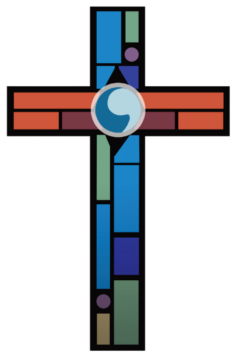This Easter, we are talking about freedom, which is a very important value to us as Christians and as Americans.
The First Amendment of our Constitution protects free speech, including freedom of expression. It includes freedom of religion, freedom of assembly, peaceful protest, and freedom of the press. There have been actions this year that have challenged those freedoms. This picture is from the Mayday protest this past week downtown, which was Mayday as in urgent help needed, that was supporting immigrant workers who appear to be under attack.
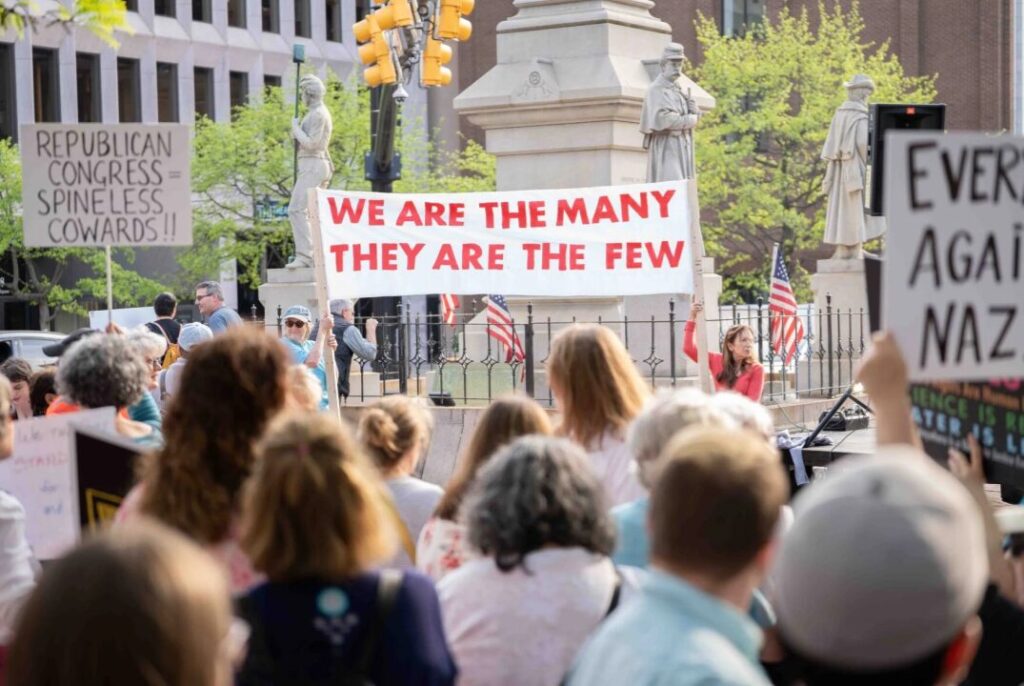
There is also a desire among an influential group to make our nation a white patriarchal Christian nation, and that is not what the Constitution says. Our faith also has freedom. The Roman gods became very jealous and required their subjects to give to them and to listen to them. Our God has never required that. Our God has always invited it. Now, there are consequences when you choose not to, and those consequences still exist.
But in our scriptures for today, we hear two very clear examples of people who were going in a way that was against God. Yet they are invited back to come and be God’s people once again.
There is a Saul in the Hebrew Testament who becomes king. That is not this Saul. In the scripture, Acts 9:1-6, this Saul is a Pharisee who has gone after people within the Jewish community, who are following Jesus, who believe that Jesus was the one who is more than a prophet, but the Son of God.
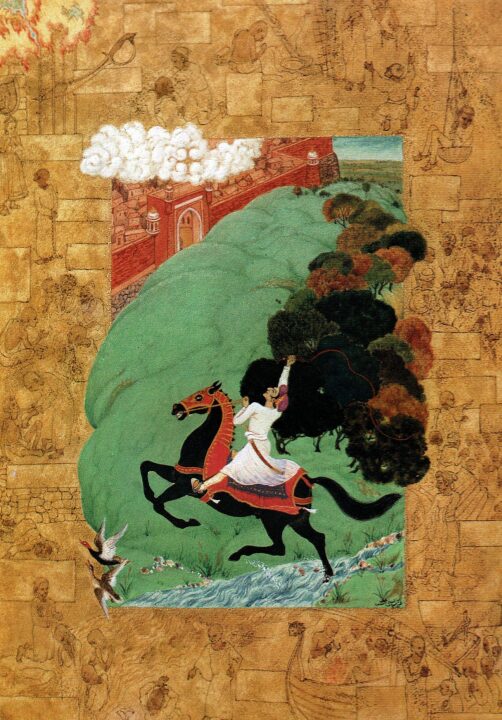
Saul’s story starts actually in Chapter Seven, where he is present at the stoning of Stephen. So he endorsed that, even encouraged it. And in Chapter Eight of Acts, we hear this about Saul. He was ravaging the church by entering house after house, dragging off both men and women, and committing them to prison. That’s what Saul was doing to the people who followed Jesus. Saul saw his work as eliminating those who followed Jesus, and he did so with violence and cruelty. It seems that he felt entitled to continue this violence until he had this moment, which I call his come-to-Jesus moment, where Jesus shows up and says, why are you persecuting me?
I think this scripture is meant to send us back to Matthew 25, where Jesus says, “When you do it to the least of these, you do it to me.” So Saul went after the followers of Jesus. Jesus felt that he was being persecuted. When we go after the people who are the poor, the orphan, the widow, those are the ones that we are supposed to care for, and yet those are the ones that Saul was attacking.
While we’re on Matthew 25 and we’re remembering that story, I think we need to be reminded that at the end of that, it tells us that at the end of time or in our death, we get to stand for how we lived our lives. The sheep and the goats are separated. Have we used our lives to make a difference in this world? Have we used our lives to care for others or not? There are consequences for our behavior, even though I still believe in forgiveness and grace.
Our gospel reading is another come-to-Jesus moment for Peter, and I really do mean another one for Peter.
I think throughout the gospels, Peter has had more than one. If you think about all the times Peter gets called out by Jesus, Jesus kept trying to turn him around. I often say that Peter is our best reason for why you can believe because Peter appeared to have done everything wrong, including denying Jesus in his hour of need, and yet we bring them back.
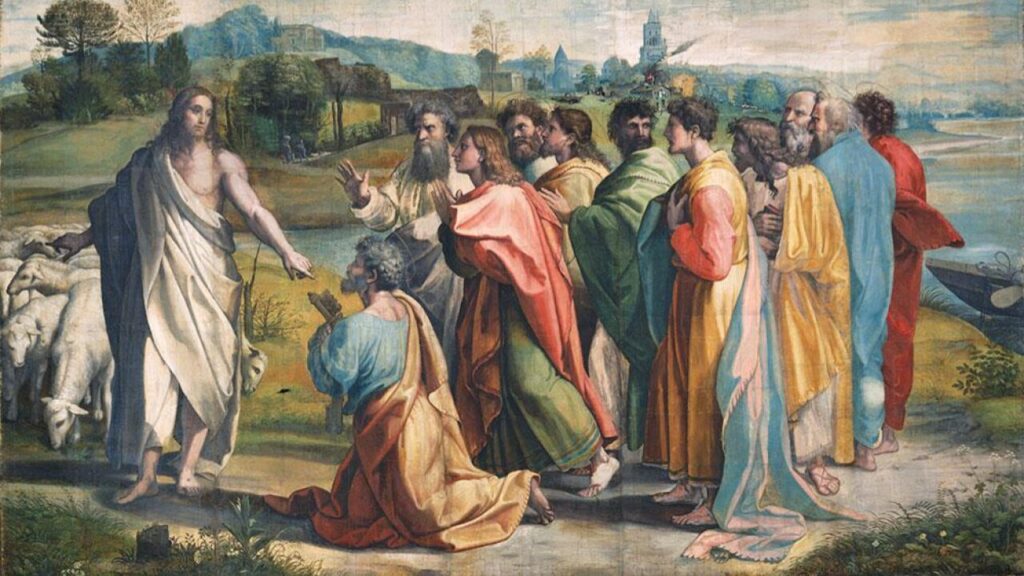
When I think about this moment, this is a piece by Raphael. A little bit more traditional than some of the ones I show, but in this moment, Jesus is calling Peter to say, What are you gonna be about in your life? And if you love me, then you’re going to feed my lambs and tend my sheep and feed my sheep?
Because the Easter story is that love transforms. It forgives and it sets us up and sends us out to serve others. That is who we are to be. What does that entail? Well, I think it’s about loving our neighbor. It’s about recognizing the stranger in our midst and offering hospitality. That’s how Christians were known in the beginning.
They were known because they welcomed people. They invited people in. As Pope Francis reminded us in his living, it’s not our place to judge. We want to judge. The church has been doing that for a long time, and it worked for quite a while, so we tried to make people feel guilty and come to church because they feel guilty.
That’s not working anymore. I don’t think it was ever a good strategy. I think this strategy is to remind people of the love, the grace, the forgiveness, and the accountability that we have to face, that we are called to be our best selves, and how are we living into that?
So where does that leave us?
Well, today is May the 4th Be With You. The empire uses fear to control. The resistance acts freely to protect and defend all beings. Our God is not one of vengeance and fear, but a God of love and forgiveness and justice for all.
So on this May the fourth, I wanna leave you with the wisdom of Yoda. “Fear is the path to the dark side. Fear leads to anger. Anger leads to hate, and hate leads to suffering.”
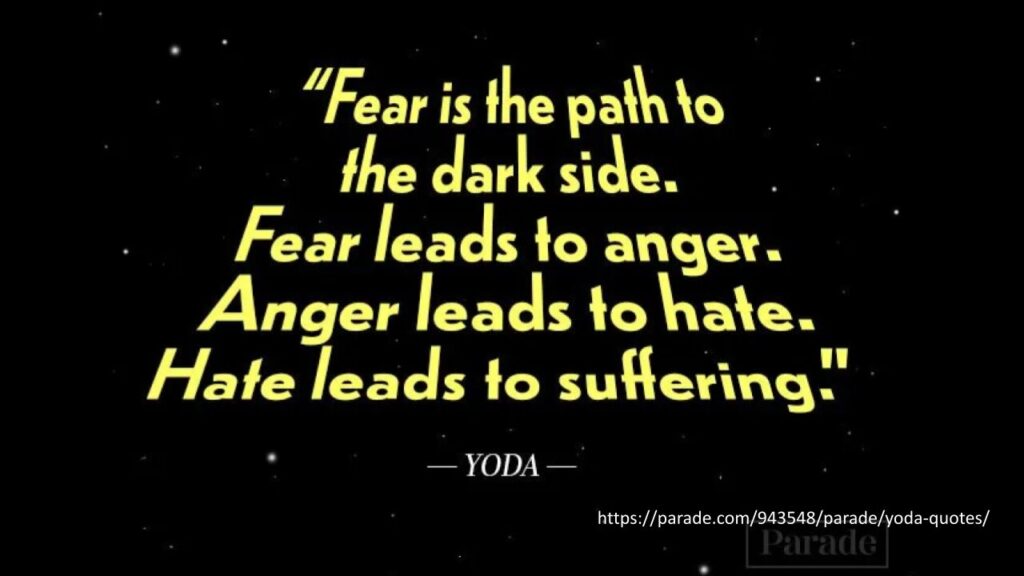
It almost sounds like it should have been written in the Bible, but what was written in the Bible in the first letter of John is that there is no fear in love. Perfect love casts out all fear, so the darkness is all around us, but the force of light is also present. We also have that piece that I read from the beginning of John’s gospel, that the light was in the darkness and the darkness did not overcome it. The choice is yours.
